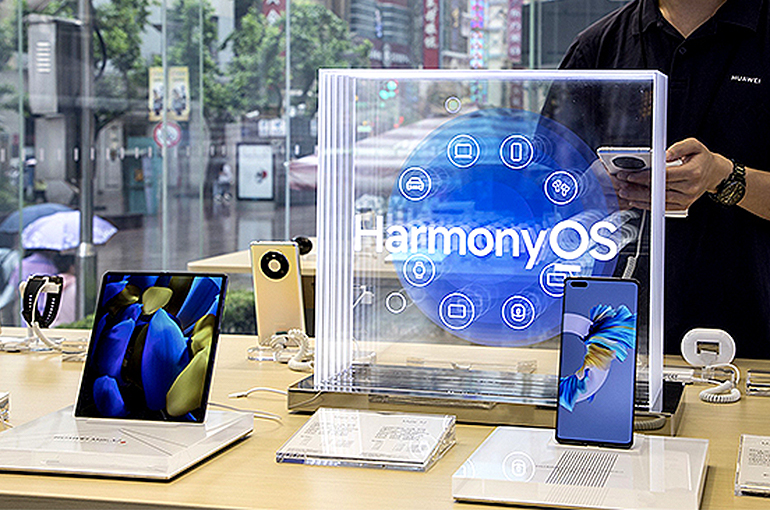 Huawei’s Latest Operating System Doesn’t Support Android Apps
Huawei’s Latest Operating System Doesn’t Support Android Apps(Yicai) Jan. 19 -- The latest version of HarmonyOS Next, Huawei Technologies’ own operating system, has become independent and will no longer support apps developed for Google's Android, according to the Chinese tech giant.
Huawei does not rely on Linux or Unix cores in HarmonyOS Next, Richard Yu, chief executive of the Shenzhen-based firm’s consumer business group, said at yesterday’s launch event. It has been developed completely independently, including OS core, file system, programming language, artificial intelligence framework, and large language models, he said.
HarmonyOS had been compatible with Android apps since its debut in 2019. Huawei launched an expansion of HarmonyOS-native apps last September, with businesses and developers in various fields, including social, audio and video, gaming, news, finance, and food, joining to build a HarmonyOS ecosystem.
Some 800 million devices have HarmonyOS installed, making it a comprehensive system running on various devices, including smartphones, tablets, computers, televisions, smart wearables, and autos, Yu noted. Huawei plans to build 5,000 HarmonyOS-native apps with its partners this year, he added.
Nearly half of China's top 200 apps have started developing HarmonyOS-native apps, including Ant Group's Alipay, on-demand delivery giant Meituan, e-commerce behemoth JD.Com, video site Bilibili, and lifestyle platform Xiaohongshu.
It is the first time a homegrown OS uses fully self-developed technologies for its core, a developer attending the event told Yicai. In this way, Huawei hopes to respond to those saying HarmonyOS is just another custom Android read-only memory, the person said.
Around 2.6 million apps were available on the Chinese market as of the end of last year in a market worth CNY10 billion (USD1.4 billion), according to a research report by Shengang Securities. About 1 million apps will potentially need to migrate to HarmonyOS from Android, it said.
Building an ecosystem takes time, the report said. Migration of major apps may be the focus this year, with the shift over likely to expand to less significant apps in the next one to two years, it said.
HarmonyOS has the opportunity to seize more than 15 percent of the market next year, attracting software vendors to join its ecosystem, Lucas Zhong, an analyst at Canalys's Shanghai office, told Yicai. The challenge is how HarmonyOS-native apps can bring a unified user experience and be different from other operating systems while encouraging Android developers to migrate to it, he noted.
Apple's iOS and Android are the only two mainstream operating systems for mobile devices. Samsung Electronics' Bada and Tizen, the latter of which the South Korean firm develops with Intel, have not taken a big slice of the market.
Editors: Zhang Yushuo, Martin Kadiev